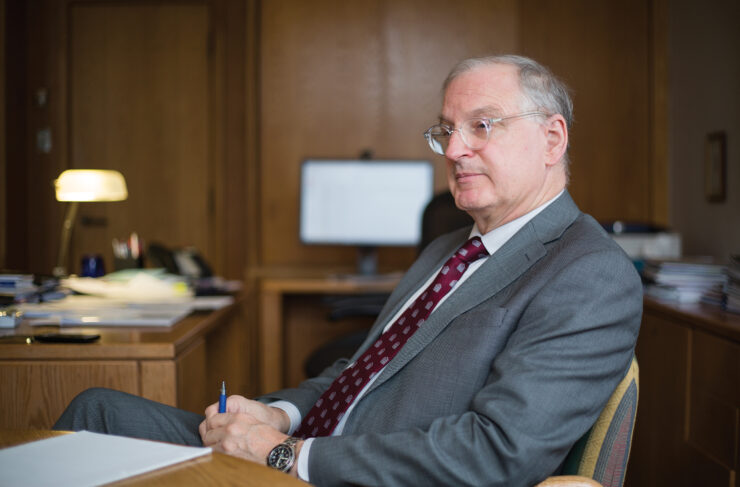DURING THE STUDENT Federation of the University of Ottawa (SFUO) elections Feb. 14–16, students at the U of O will be asked to respond to a referendum question on whether to accept the continuation of the U-Pass program at an increased price. A “No” campaign committee has been formed to encourage students to vote against the increase, hoping to draw attention toward the U-Pass price hike.
“Send this unfairly priced U-Pass back to city hall,” said Nicolas Fleet, member of the “No” committee. “It is up to city hall to come up with a number that works well for all students to make transit affordable.”
The price of the U-Pass program to be approved is a 24 per cent increase from the current price—$145 each semester. For the committee, the issue is the service affecting students are being cut while the price is going up.
“We need to see a real value in the service provided to students,” said Amy Hammett, vp student affairs of the SFUO and member of the “No” committee. “We see Roger Guindon Hall students are incredibly affected by the route changes, and there were many letters and complaints written about those changes. [Students are] looking at a higher [price] increase for services that certainly do not live up to the best transit in the country.”
In February 2010, 64 per cent of students voted in favour of the program in the U-Pass referendum. According to Hammett, the referendum was fairly close, and with the price increase on the table, it is likely it won’t get the same amount of support this time around.
The committee’s campaign will focus on talking to students and getting input from the community. The committee will also be doing class presentations to make students aware of the issues surrounding the U-Pass.
“OC Transpo would have to substantially increase service,” said Fleet on what would make the program more effective. “We need to match the service to the increase in price and students aren’t getting 24 per cent more service. We need to reject this proposal by encouraging students to vote ‘no.’”
The members of the committee also believe the U-Pass increase is specifically unfair to students because the regular cost of transit is not growing by the same amount.
“The general public got a two and a half per cent increase, [while] students got 10 times more of an increase for the U-Pass,” said Chris Spoke, member of the committee. “We can’t really complain if everyone has to pay more, but this certainly does single out students.”
Fleet said in addition to the high price, the positive environmental impact of the U-Pass has been minimal, according to a survey conducted by the City of Ottawa.
“What [the survey] found was there was virtually no change in the number of drivers who drive to campus but there was a reduction in walking and cycling and increase in transit users,” said Fleet.
“Many of the gains to adopting transit came from people who were already making green, smart, and sustainable choices when getting to campus. For that reason, because it does not divert car drivers into public transit, we worry that the environmental benefits at this price weren’t attractive enough to get people out of their cars and on to the bus.”
—Christopher Radojewski


